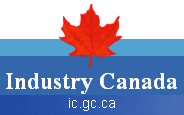As part of the official process to launching Canada’s new Anti-spam legislation Industry Canada has released their definitions and regulations for C-28 (aka. CASL, FISA, ECPA).
The Highlights are as follows:
- Personal Relationship: Where an individual has met with the person to whom the message is sent in a non-business context, and where there is evidence of non-commercial communication between the individuals within the previous two years.
- Family Relationship: for the purposes of the Anti-spam Legislation to be in keeping with definitions in the Income Tax Act. It also specifies that it is intended to refer to persons descending from a common grandparent, including aunts, uncles, cousins, nieces, and nephews.
- Express consent under the Anti-spam Legislation means that commercial communication may not take place unless the person or corporation in question first consents to be contacted.
- Implied consent means that commercial communication may take place with persons or corporations under circumstances where it can be deemed that they might be interested, but the recipients of the communication must be able to “opt out” of such communication.
- The second element of the Regulations states that consent to receive messages from a third party is only valid if the individual providing consent will have the ability to unsubscribe to the message, and by the same means be able to alert the original requester that their consent is withdrawn.
- The proposed Regulations define “membership” as having applied for, met the formal requirements to belong to an organization, paid any fees required to belong to an organization, and having been accepted as a member in accordance with the membership requirements of the organization.
- The proposed Regulations define “club,” “association” or “voluntary organization” as a non-profit organization that is organized and operated exclusively for social welfare, civic improvement, pleasure or recreation or for any other purpose than profit, if no part of the income of which was payable to, or otherwise available for the personal benefit of any proprietor, member or shareholder of that organization unless the proprietor, member or shareholder is an organization the primary purpose of which is the promotion of amateur athletics in Canada.
Please note these these regulations are in addition to the CRTCs regulations and the OPC’s regulations and are not a replacement. Unsubscribe, Identification and Consent have been regulated by the CRTC.
Comments are due to Industry Canada “Interested persons may make representations concerning the proposed Regulations within 60 days after the date of publication of this notice.”


